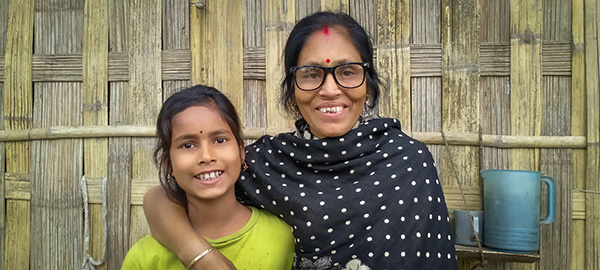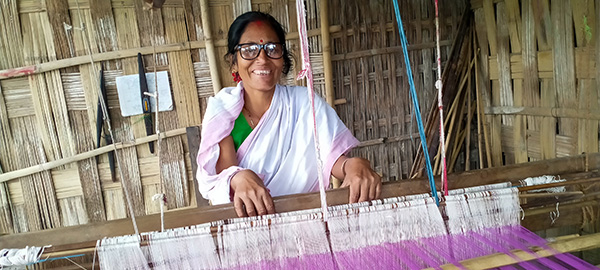To weave cloth using a handloom, you need patience, coordination and most of all – keen eyesight.
So when Junmoni, a handloom weaver, started having trouble with her vision, she knew her livelihood was in peril.
The mother of two lives in Chakala, a village near the Brahmaputra River in Assam, northeast India. Her husband works as a day labourer, which offers little financial stability. As a result, Junmoni’s weaving is the family’s primary source of income.

As her vision faltered, Junmoni was producing less and less cloth. She worried about the fates of her two children, nine-year-old Sarna and 13-year-old Sanjib. Her hope of keeping them in school and sending them off to higher education dwindled as the family’s situation became more and more precarious. She even considered selling off her weaving equipment to bring some money into the household.
A knock on the door changed everything for her.
Earlier this year, an Operation Eyesight community health worker showed up at Junmoni’s doorstep as part of a community-wide screening program. After Junmoni described her vision problems, she was referred to a free screening camp happening in her neighbourhood. Without needing to leave her village, Junmoni was diagnosed with near vision, and received a pair of free prescription eyeglasses.
She marvels at the difference a pair of eyeglasses can make. “It’s exciting how a small thing can change the world,” she says.
Today, she is back at her handloom supporting her family, her dreams of sending young Sarna and Sanjib off to college once again intact.

